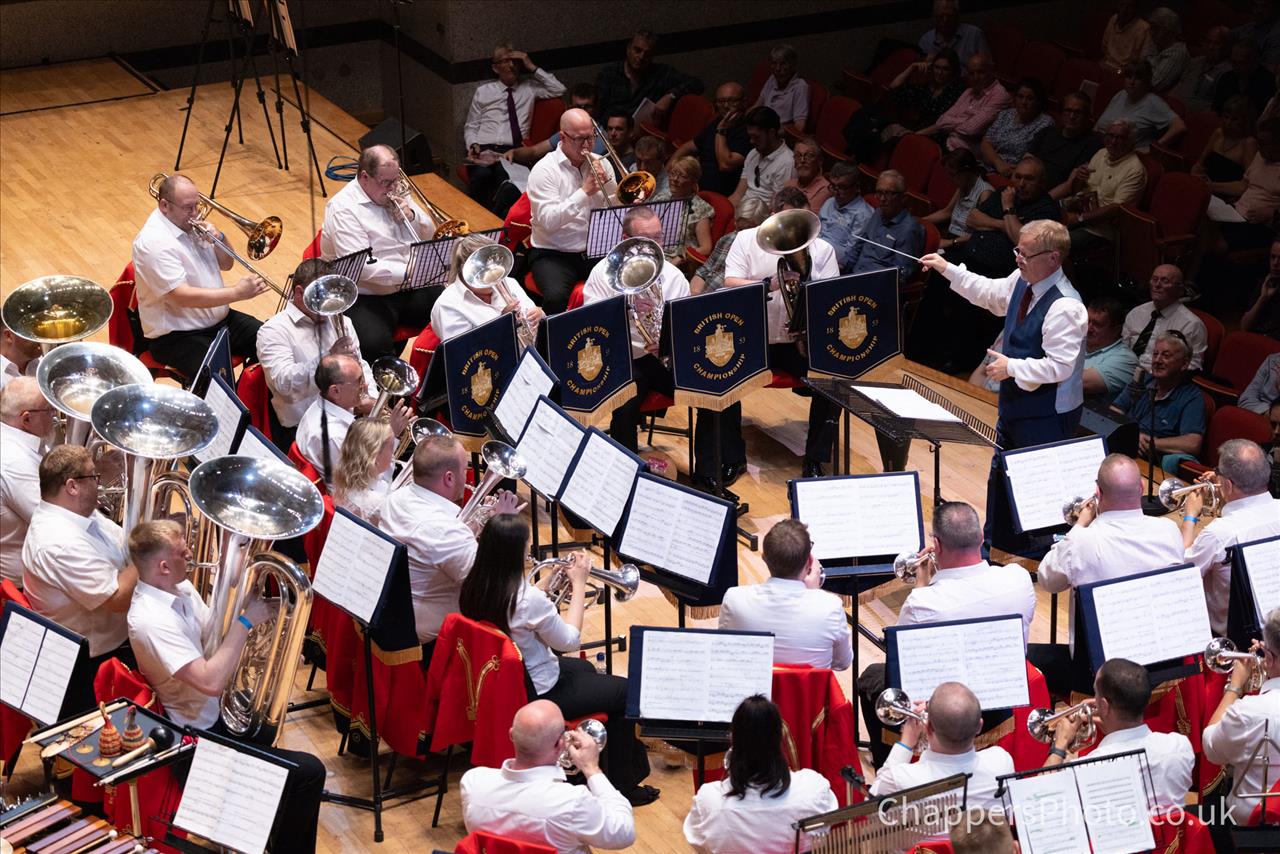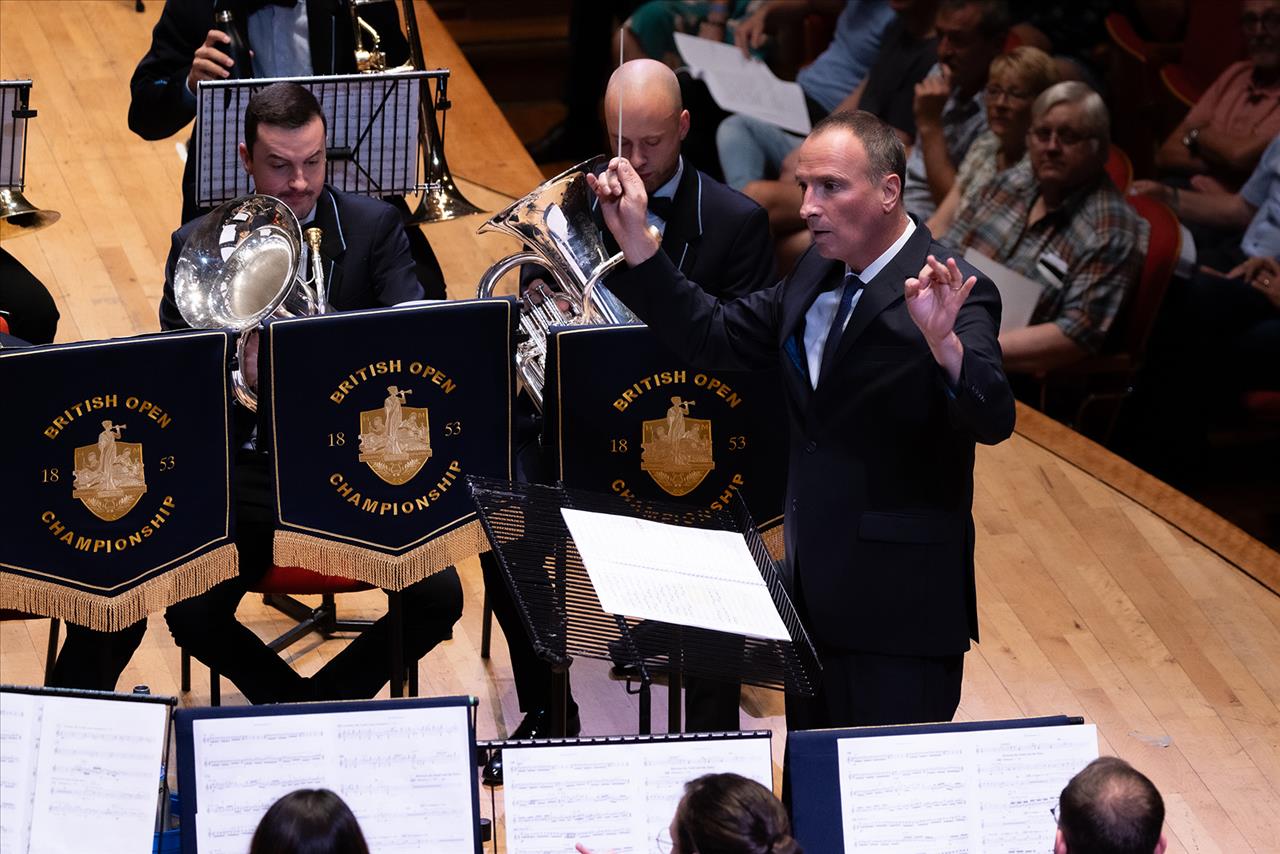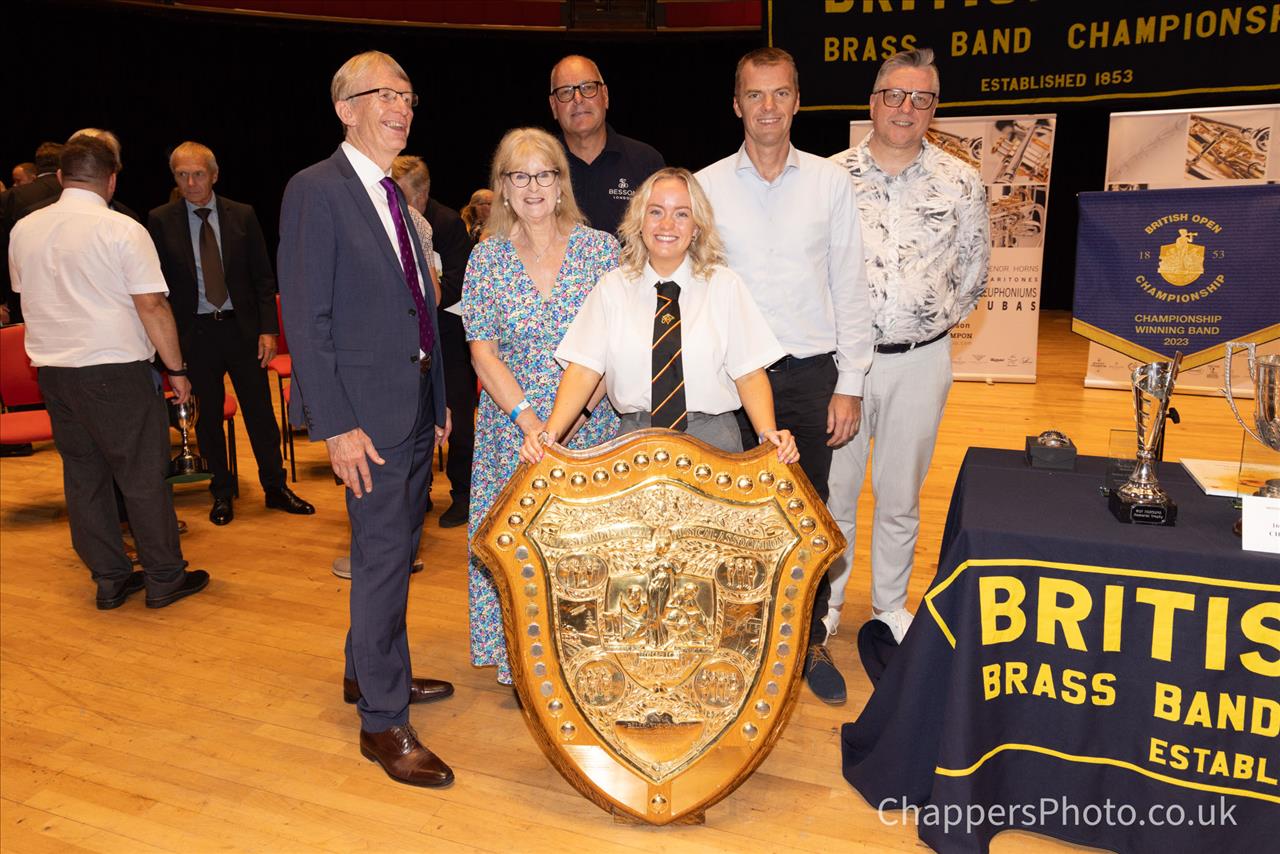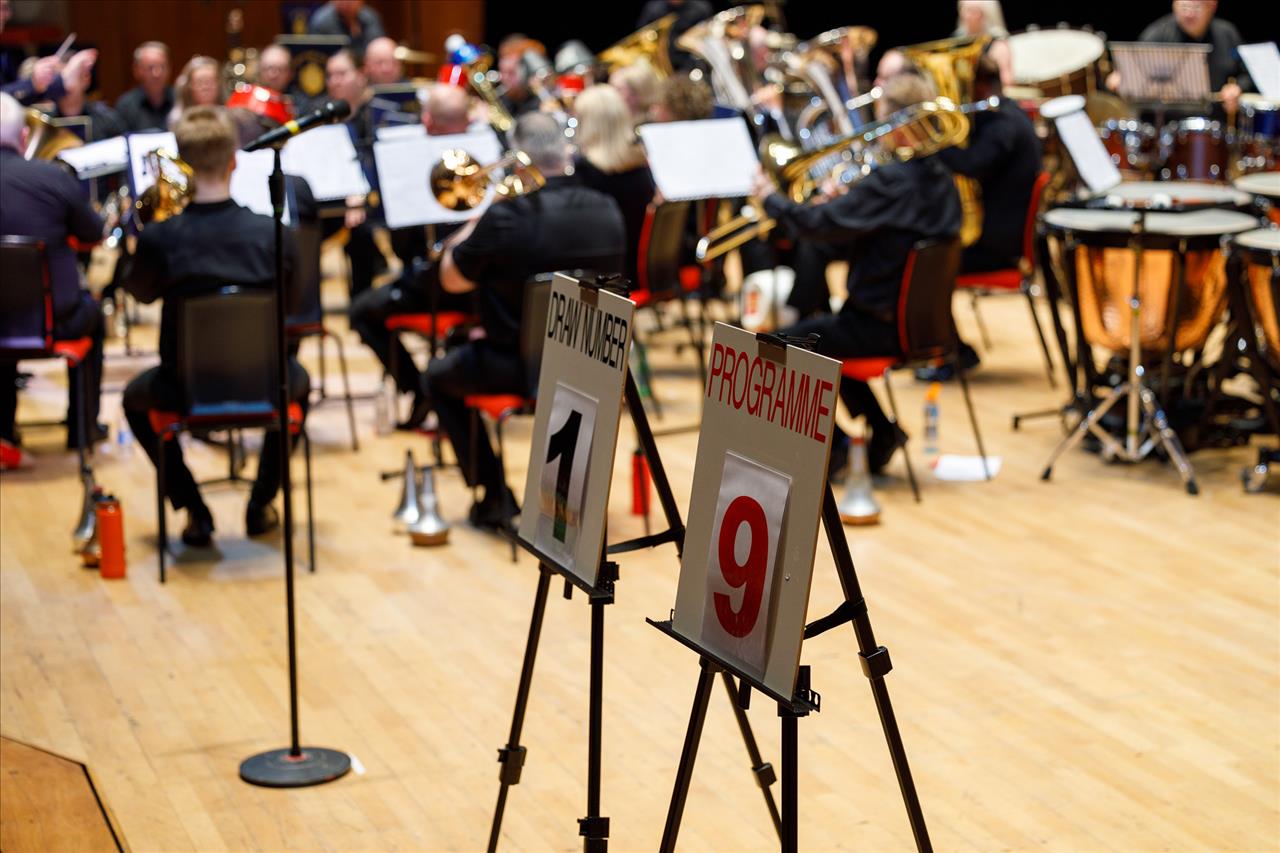
1. Demand for quality
Although the 169th British Open wasn’t completely sold out this year, there were still fewer than 30 tickets left (from the 2,000 plus that went on sale) by the time the doors opened for the audience to file in to hear compere David Hayward start the day.
Despite the soaring temperatures, the demand to hear the very best bands perform an exciting test-piece in a superb concert hall remains exceptionally strong, although the contest organisers are very aware that the event (as well as the Spring Festival) must also continue to evolve.
Challenges lie ahead, but an underlying fact about the British Open in particular remains in place. There will always be a demand for quality.
Short, medium and long term plans will need to be explored, consulted and acted upon - from balancing test-piece lengths and competing numbers to music choices and enhancing links to European and worldwide banding.
In those respects the event owners Karyn and Martin Mortimer have made it clear that they are determined that the futures of both the British Open and Spring Festival are underpinned by an ambition to provide competing bands and listeners (both at the venues and through live-stream broadcasting) with contests based on excellence.
Challenges lie ahead, but an underlying fact about the British Open in particular remains in place. There will always be a demand for quality.

2. Foden’s in Excelsis
Foden’s has enjoyed many periods of success over the past 120 or so years of their history, as well as some fallow and uncertain times too.
Their outstanding victory though was an endorsement of not only their musical brilliance under MD Russell Gray, but also to the way in which they go about their banding business.
The musical partnership works due to an understanding of the balance required to benefit both parties. Russell Gray sets the musical standard that is worked on week in week out by the players and Musical Director Michael Fowles, who plays such an integral part in their long-term success.
Their outstanding victory though was an endorsement of not only their musical brilliance under MD Russell Gray, but also to the way in which they go about their banding business.
As a result Foden’s has maintained a stable core of experienced performers of the very highest quality (not just the remarkable set of soloists) as well as an organisational set-up that has clearly defined ambitions of its own – from celebration of heritage to future innovations.
Now the focus is on emulating the most famous Foden’s Band of all and claiming a hat-trick of National Championships wins as well as creating their own mark by becoming a ‘Double Champion’ and hat-trick winner at the same time – something only Black Dyke has achieved before.

3. Closer European ties?
Few people would now argue that the British Open has not been greatly enhanced by having the very best European bands (as well as occasionally from around the world) competing at the event.
The current arrangement is somewhat reciprocal. Foden’s will represent England at the European Championships in Stavanger in 2025 (Brighouse will do so in Palanga in 2024) after winning the event.
Like Valaisia this year (as well as Paris and Eikanger before them), perhaps the time has now come to formalise a lasting link, rather than allowing a band to return only if they win the contest (as Valaisia has done previously).
Meanwhile, Brass Band Treize Etoiles, as the winner of the 2023 European Championships will compete at the 2024 British Open.
Like Valaisia this year (as well as Paris and Eikanger before them), perhaps the time has now come to formalise a lasting link, rather than allowing a band to return only if they win the contest (as Valaisia has done previously).
That may antagonise some UK bands who feel that it would be unfair in some way given the current ‘qualifying’ structures that are in place, but what a contest the British Open could further become if it did.

4. Deleruyelle’s Arabic winner
One of the recurring themes heard in conversation with both conductors, players and audience listeners alike at Symphony Hall was just how much they enjoyed Thierry Deleruyelle’s ‘Sand and Stars’.
Colourful, exciting and virtuosic it may have been, but it also came with a caveat that has already been taken into account by the contest organisers: It is exceptionally difficult to play to a level that does it justice.
Colourful, exciting and virtuosic it may have been, but it also came with a caveat that has already been taken into account by the contest organisers: It is exceptionally difficult to play to a level that does it justice.
It is also one of the reasons why it has not been picked as the set-work for the Grand Shield in May next year (although it may be considered in future) and why its popularity should be tempered by a long and hard dose of realism by conductors and bands alike.
However, it also underpins one of the reasons why the test-pieces for the 2024 Spring Festival have been selected - a reflection on just what levels of technical and musical competence must be mastered if bands are to hope to get through to future British Opens.

5. Old and new
One of the strengths of the British Open has been its ability to look to the future without losing its connection to the past.
The contribution made by a fantastic team of backroom volunteers led by Frank Hodges in doing just that was deservedly marked by compere David Hayward (himself included) before the announcement of the results.
The event may now be live-streamed across the world, but it must still pay its way through sponsorship and revenue streams as well as old fashioned ticket sales.
The event may now be live-streamed across the world, but it must still pay its way through sponsorship and revenue streams as well as old fashioned ticket sales.
Innovations are embraced but there are still programmes and study scores to publish and sell (you could pay for them with cash or credit card this year), trophies and prizes to arrange, judges and hotel rooms to book, catering, health and safety, child protection, logistics and access, signage and hospitality – let alone making sure the results are collated and bands get their adjudications before the judges’ tent can be packed away for another year.
Some contesting aspects may seem ‘old fashioned’ – but ensuring that each player of the winning band gets a commemorative paperweight to mark their achievement, the conductor is presented with their Harry Mortimer Trophy, the percussion needs are met (thank to Ray Payne) and everyone from conductors to band bus drivers are kept informed and happy is a tradition well worth keeping well into the future.













